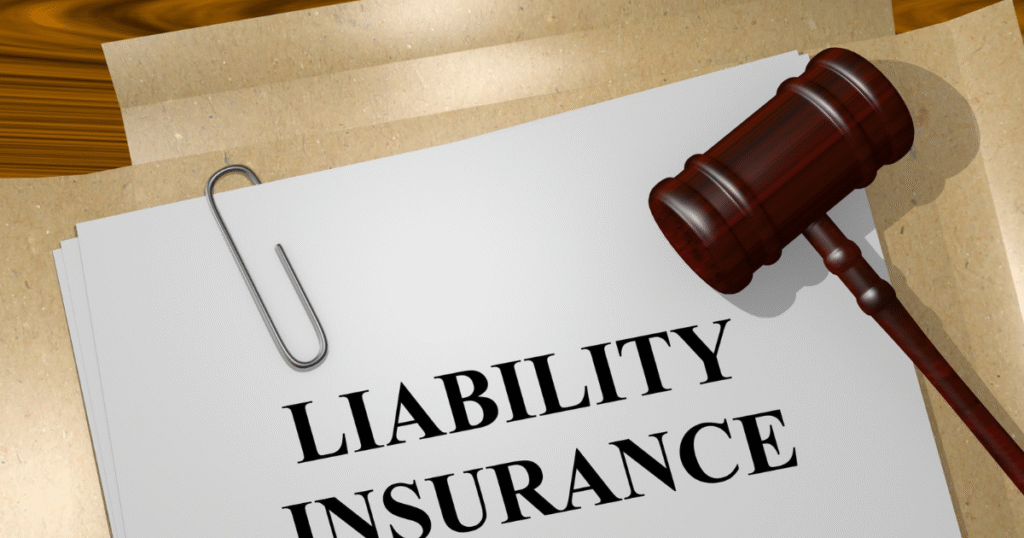Renters insurance is often an overlooked aspect of renting a home or apartment, but it provides essential protection for your belongings and personal liability. Whether you’re renting your first apartment or have been renting for years, understanding renters insurance is key to making an informed decision about your coverage needs. This guide will walk you through what renters insurance is, the types of coverage it provides, how much it costs, and how to choose the best policy for you.
What Is Renters Insurance?
Renters insurance is a type of insurance policy that covers your personal belongings and provides liability protection while you’re renting a home or apartment. It is designed to protect you in the event of unexpected events, such as theft, fire, or accidents, while you’re living in a rented space. It doesn’t cover the building or property itself (that’s the landlord’s responsibility), but it offers coverage for your personal items and legal expenses related to accidents in your home.
Why Do You Need Renters Insurance?
Protect Your Personal Belongings
Renters insurance is crucial because it helps protect your personal possessions in case of unforeseen incidents. If your belongings are damaged or destroyed due to events like fire, water damage, or theft, your renters insurance policy can cover the replacement or repair costs.
Liability Coverage
Renters insurance provides liability coverage, which helps protect you in case someone is injured on your rental property. For example, if a guest slips and falls, your renters insurance may cover medical expenses, legal fees, and any other costs associated with the injury.
Affordable and Accessible
Renters insurance is generally affordable, with policies often costing just a few dollars a month. Considering the protection it offers, it’s an invaluable asset for renters of all income levels.
Types of Renters Insurance Coverage
Renters insurance policies vary in terms of coverage, but most will fall into one of the following categories:
1. Personal Property Coverage
What It Covers
Personal property coverage protects your belongings, including furniture, electronics, clothing, and jewelry. If these items are stolen or damaged by an insured event (such as fire or vandalism), this coverage will help you replace them.
How It Works
When filing a claim for personal property, your insurer will generally either reimburse you for the current value of the items (actual cash value) or the amount it would cost to replace them (replacement cost). Replacement cost coverage tends to be more expensive but provides greater financial protection.
2. Liability Coverage

What It Covers
Liability coverage helps protect you if you’re responsible for injuries or damages that happen to others while they’re on your rental property. This coverage typically extends to both personal injury and property damage. For example, if a guest gets hurt while visiting your home, this coverage can help cover their medical bills.
How It Works
Liability coverage also typically covers legal fees if you’re sued due to an incident on your property. This can include everything from legal defense costs to settlement fees.
3. Loss of Use Coverage
What It Covers
If your rented home becomes uninhabitable due to a covered event (such as fire or severe water damage), loss of use coverage helps pay for temporary living expenses, such as staying in a hotel or renting another property until your home is habitable again.
How It Works
The coverage typically includes things like hotel stays, meals, and other living costs incurred during your displacement. Loss of use coverage is especially helpful if your rental property becomes unlivable due to an event that’s beyond your control.
4. Medical Payments Coverage
What It Covers
This type of coverage provides compensation for medical expenses if someone is injured on your rental property, regardless of who’s at fault. For example, if a neighbor trips and falls in your hallway, their medical costs may be covered by your renters insurance policy under medical payments coverage.
How It Works
Medical payments coverage usually provides a smaller payout compared to liability coverage but can be a useful addition if you want to avoid disputes over injury-related expenses.
How Much Renters Insurance Do You Need?
Determining how much renters insurance you need depends on a few factors, such as the value of your belongings, your liability risks, and your budget. Here are a few things to consider when deciding:
1. Evaluate Your Personal Property
Start by making a list of your personal property and estimating its value. Think about electronics, furniture, clothing, jewelry, and other valuable items. If your belongings are worth a significant amount, you may want to consider purchasing replacement cost coverage instead of actual cash value coverage.
2. Assess Liability Risk
Consider how much liability protection you may need. If you entertain guests often or have a pet, you might want to consider increasing your liability coverage to account for potential risks.
3. Account for Living Expenses
In case of an emergency that displaces you from your home, make sure your policy includes sufficient loss of use coverage to cover temporary living expenses.
How Much Does Renters Insurance Cost?
The cost of renters insurance can vary depending on factors like where you live, the value of your belongings, and the type of coverage you choose. On average, renters insurance costs between $15 and $30 per month.
Some factors that may influence the cost include:
- Location: Renters insurance can be more expensive in areas prone to natural disasters, such as hurricanes or earthquakes.
- Coverage Limits: Higher coverage limits, such as for personal property or liability, can increase the cost of your premium.
- Deductibles: The higher your deductible, the lower your premium may be. However, you’ll pay more out of pocket when making a claim.
How to Choose the Right Renters Insurance Policy
When selecting a renters insurance policy, consider the following tips:
1. Compare Quotes
Make sure to shop around and get quotes from different insurance providers. This will give you a better idea of the pricing and coverage options available.
2. Read the Fine Print
Review the policy details carefully to understand what’s covered and what isn’t. Pay attention to exclusions, such as flood or earthquake coverage, and make sure you’re comfortable with the terms.
3. Check Customer Reviews

Look at reviews from other policyholders to see how the insurer handles claims and customer service. You want a company that is reliable and responsive when it comes to dealing with your claims.
4. Ask About Discounts
Many insurers offer discounts for things like bundling renters insurance with auto insurance or installing security devices in your rental property.
Also Read: Understanding Liability Protection: A Complete Guide
Conclusion
Renters insurance is an affordable and essential tool for protecting your personal belongings, covering liability risks, and providing peace of mind while renting. By understanding the types of coverage available and evaluating your needs, you can make an informed decision that suits your budget and lifestyle. Whether you’re a first-time renter or have rented for years, securing renters insurance should be a priority to safeguard both your property and financial well-being.
FAQs
1. What does renters insurance cover?
Renters insurance typically covers personal property, liability for injuries or damage caused to others, loss of use if your home becomes uninhabitable, and medical payments for injuries on your property.
2. Is renters insurance mandatory?
While renters insurance is not legally required in most states, your landlord may require you to have it as part of your lease agreement.
3. How much renters insurance do I need?
The amount of coverage you need depends on the value of your belongings and your personal liability risk. Generally, you should have enough coverage to replace your possessions and protect against significant liability risks.
4. What is the difference between actual cash value and replacement cost?
Actual cash value covers the value of your property after depreciation, while replacement cost covers the amount it would cost to replace your property with a new item of similar quality.
5. How can I save on renters insurance?
You can save by bundling your renters insurance with other policies like auto insurance, increasing your deductible, or installing safety features such as smoke detectors or deadbolts.





